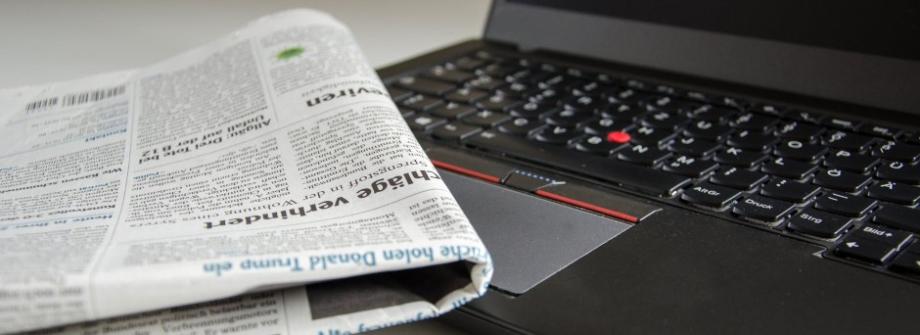
Prof. Ali Bazarbachi, American University of Beirut Medical Center, Beirut, Lebanon, comments on the publication entitled " Role of stem cell transplant in CD30+ PTCL following frontline brentuximab vedotin plus CHP or CHOP in ECHELON-2" published in Blood Advances.
Role of stem cell transplant in CD30+ PTCL following frontline brentuximab vedotin plus CHP or CHOP in ECHELON-2
Savage K et al.
Blood Adv. 2022 Oct 11;6(19):5550-5555. doi: 10.1182/bloodadvances.2020003971.
There is no consensus on the role of consolidative stem cell transplantation (SCT) following frontline chemotherapy in patients with peripheral T cell lymphoma (PTCL), mainly due to the lack of large prospective randomized trials in that setting1-4. Nevertheless, despite the controversy, autologous SCT (ASCT) is frequently used based on the encouraging results from the Nordic Lymphoma Group prospective phase 2 clinical trial and data from multiple retrospective or registry studies5-7.
ASCT results were best in patients achieving complete remission (CR) after frontline chemotherapy6. For decades, CHOP has been the regimen used by default3,4. Recently, the randomized, phase 3 ECHELON-2 study demonstrated that the replacement of vincristine in the CHOP regimen by the antibody-drug conjugate brentuximab vedotin targeting CD30 (A+CHP) resulted in improved CR rate, and sustained long-term benefit in progression free survival (PFS) and overall survival (OS) in patients with CD30+ PTCL8,9. These results required reassessment of the role of SCT consolidation as part of the frontline therapy of PTCL.
In a post hoc subgroup analysis of the ECHELON-2 study, Savage et al. assessed the impact of SCT consolidation in patients with PTCL who achieved CR at end of treatment after frontline treatment with A+CHP or with CHOP10. They included newly diagnosed patients with ALK negative systemic anaplastic large cell lymphoma (sALCL) or non-sALCL CD30+ PTCL. Consolidative SCT (autologous or allogeneic) was allowed at the investigator’s discretion, but their intent had to be declared before starting treatment.
In the A+CHP arm, 114 patients with either ALK negative sALCL (n=76) or non-sALCL (n=38) were in a CR at the end of treatment, of whom 38 patients received consolidative SCT (36 autologous and 2 allogeneic). Consolidative SCT significantly improved PFS with hazard ratio (HR) of 0.36 (95% CI,0.17-0.77). This PFS benefit from consolidative SCT was seen in the subgroups of ALK negative sALCL or non-sALCL. Interestingly, multivariate proportional hazards regression analyses favored the use of consolidative SCT in patients achieving CR after A+CHP, even after adjusting for age and geographic region, and regardless of the PTCL subtype.
In the CHOP arm, 97 patients with either ALK negative sALCL (n=53) or non-sALCL (n=44) were in a CR at the end of treatment, of whom 29 patients received consolidative SCT. At a median follow-up of 53.7 months, there was only a trend favoring consolidative SCT: HR, 0.63 (95% CI, 0.32-1.24). again, multivariate proportional hazards regression analyses favored the use of consolidative SCT in patients achieving CR after CHOP, even after adjusting for age and geographic region, but the benefit was less evident compared to that seen in the A+CHP arm.
This post hoc subgroup analysis of the ECHELON-2 study has multiple limitations including the small number of patients, the freedom to perform consolidative SCT at the discretion of the investigator, the younger age of transplanted patients, and some regional differences (less frequent intent to transplant and less frequent consolidative SCT in Asian countries). Nevertheless, the superior benefit from consolidative SCT in patients who achieved CR after A+CHP compared to those who achieved CR after CHOP suggests that a stronger and more powerful induction does not eliminate the role of consolidative SCT but may even strengthen it.
References:
- Sureda A, Bader P, Cesaro S, et al. Indications for allo- and auto-SCT for haematological diseases, solid tumours and immune disorders: current practice in Europe, 2015. Bone Marrow Transplant. 2015 Aug;50(8):1037-56.
- Kharfan-Dabaja MA, Kumar A, Ayala E, et al. Clinical Practice Recommendations on Indication and Timing of Hematopoietic Cell Transplantation in Mature T Cell and NK/T Cell Lymphomas: An International Collaborative Effort on Behalf of the Guidelines Committee of the American Society for Blood and Marrow Transplantation. Biol Blood Marrow Transplant. 2017 Nov;23(11):1826-1838.
- d’Amore F, Gaulard P, Trümper L, et al; ESMO Guidelines Committee. Peripheral T-cell lymphomas: ESMO Clinical Practice Guidelines for diagnosis, treatment and follow-up. Ann Oncol. 2015;26(suppl 5):v108-v115.
- Horwitz SM, Zelenetz AD, Gordon LI, et al. NCCN Guidelines insights: non-Hodgkin’s lymphomas, version 3.2016. J Natl Compr Canc Netw. 2016;14(9):1067-1079.
- d’Amore F, Relander T, Lauritzsen GF, et al. Up-front autologous stem-cell transplantation in peripheral T-cell lymphoma: NLG-T-01. J Clin Oncol. 2012;30(25):3093-3099.
- Smith SM, Burns LJ, van Besien K, et al. Hematopoietic cell transplantation for systemic mature T-cell non-Hodgkin lymphoma. J Clin Oncol. 2013;31(25):3100-3109
- Park SI, Horwitz SM, Foss FM, et al.; COMPLETE Investigators. The role of autologous stem cell transplantation in patients with nodal peripheral T-cell lymphomas in first complete remission: Report from COMPLETE, a prospective, multicenter cohort study. Cancer. 2019 May 1;125(9):1507-1517. doi: 10.1002/cncr.31861. Epub 2019 Jan 29.
- Horwitz S, O’Connor OA, Pro B, et al; ECHELON-2 Study Group. Brentuximab vedotin with chemotherapy for CD30-positive peripheral T-cell lymphoma (ECHELON-2): a global, double-blind, randomised, phase 3 trial. Lancet. 2019;393(10168):229-240.
- Horwitz S, O’Connor OA, Pro B, et al. The ECHELON-2 trial: 5-year results of a randomized, phase 3 study of brentuximab vedotin with chemotherapy for CD30-positive peripheral T-cell lymphoma. Ann Oncol. 2022;33(3):288-298.
- Savage KJ, Horwitz SM, Advani R, et al. Role of stem cell transplant in CD30+ PTCL following frontline brentuximab vedotin plus CHP or CHOP in ECHELON-2. Blood Adv. 2022 Oct 11;6(19):5550-5555.